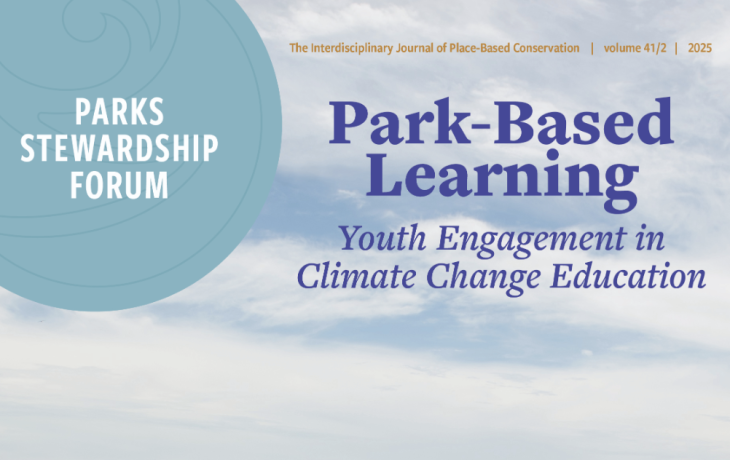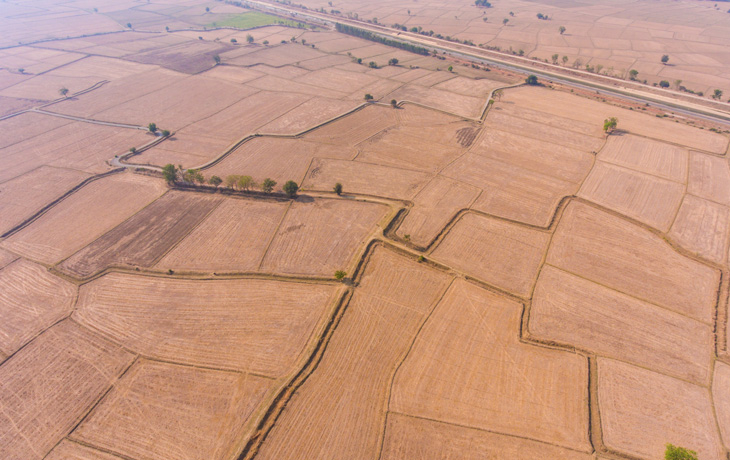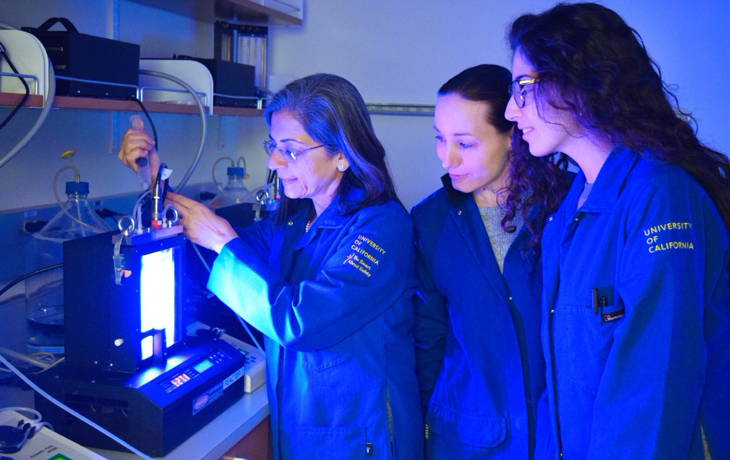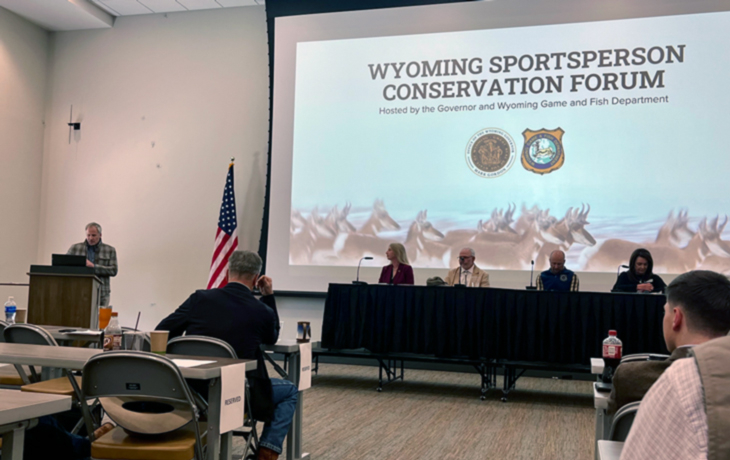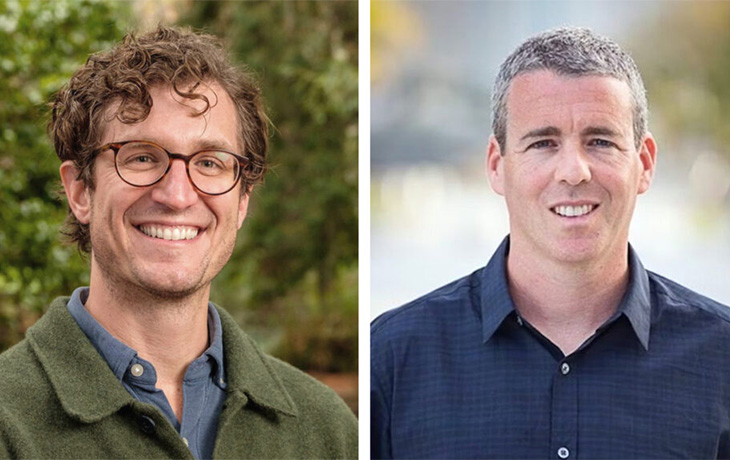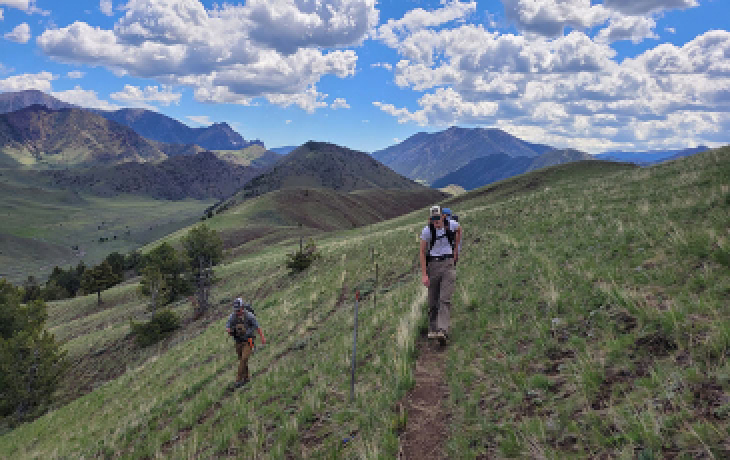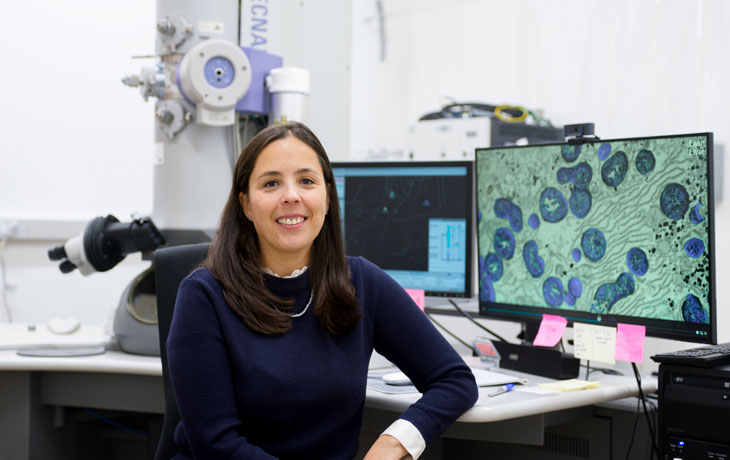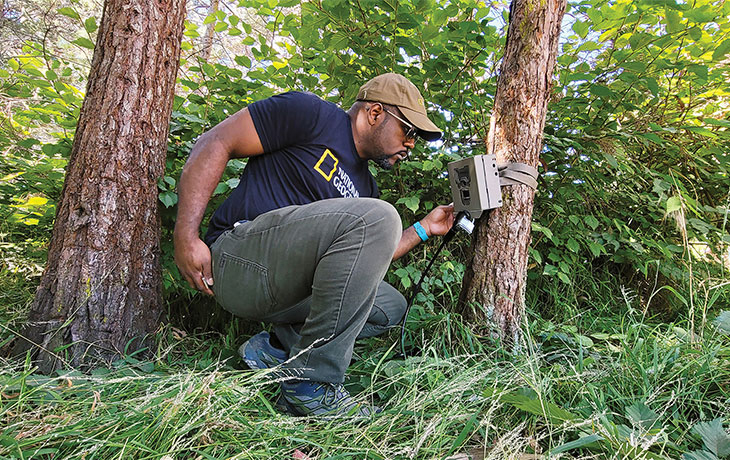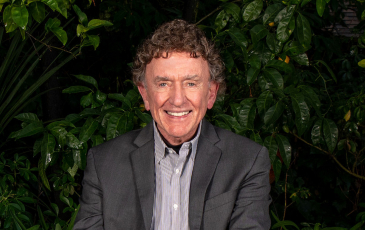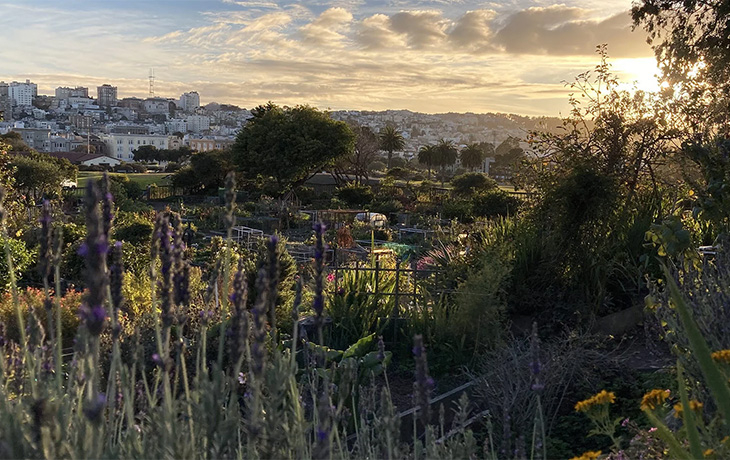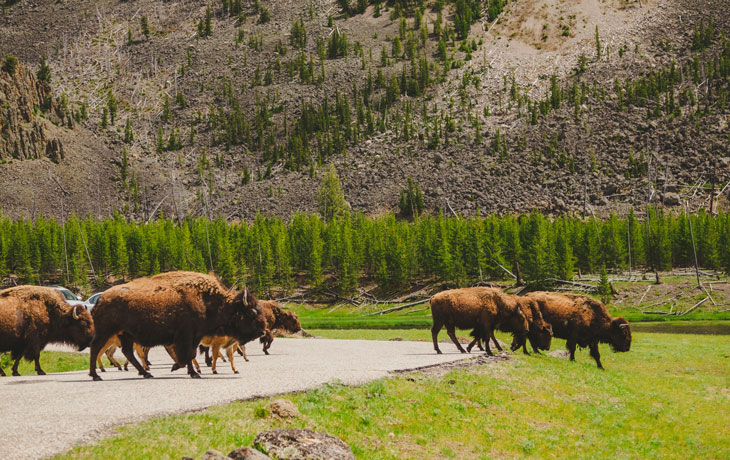ERG's Sarah Sarfaty Epstein and ESPM's Cynthia Wilson were recognized by the Robert & Patricia Switzer Foundation as graduate student leaders who are driving positive environmental and social change.
Blazing the way in the fire and forestry field
UC Agriculture and Natural Resources recently profiled Katie Low, BS '20 Ecosystem Management and Forestry; Master of Forestry '22, who helps accelerate the implementation of fire adaptation and resilience projects as UCANR's Fire Network statewide coordinator.
Four PhD candidates awarded fellowships by the Philomathia Center
Rausser College PhD candidates Yihong Zhu, Marco Dueñas, Sheherazade, and Simon Greenhill were recognized by the Philomathia Center for their exceptional promise and academic distinction in studying issues related to the environment.
Journal Spotlight: Parks Stewardship Forum
The UC Office of Scholarly Communication recently featured the Park Stewardship Forum, an open access publication for conservation professionals co-published by the Institute for Parks, People, and Biodiversity and the George Wright Society.
Biodiverse Cities, Resilient California
Highlights from the Stone Center’s Recent Urban Biodiversity Roundtable at UC Berkeley.
Climate change cuts global crop yields, even when farmers adapt
A first-of-its-kind study co-authored by Assistant Professor Tamma Carleton shows that the global food system is more vulnerable to climate change than previously thought.
Assessing the private sector's role in reef restoration
A recent study by ESPM professor Rachel Carlson explores whether Hawaiian businesses are willing to pay to protect coral ecosystems.
How tiny organisms manage stress to power the planet
Postdoctoral researcher Sunnyjoy Dupuis, PhD '25 Microbiology, writes about the PMB and QB3-Berkeley scientists peeking in on algae at night to discover how the organisms prepare for another stressful day on the job.
Everything in Life, from Water
2024 Bearhs Environmental Leadership Program participant Ali Odeh leads water service providers in Palestine.
Does the federal WIC program help manage gestational weight gain?
A recent study from Nutritional Sciences and Toxicology researchers identifies opportunities to improve maternal health through the WIC program.
Why working lands are critical to Wyoming’s conservation goals
ESPM professor Arthur Middleton, who co-directs the Stone Center for Environmental Stewardship, offers a recap of a recent panel on how Wyoming's ranches, farms, and forests are important to the future of conservation in the state.
Feeding the world without ‘eating the earth’
ESPM professor Timothy Bowles and journalist Michael Grunwald discuss the impact of our current agricultural methods and debate the ways we can ramp up food production without causing more harm to the environment.
Four ESPM students receive funding from the Stone Center for Environmental Stewardship
Michelle Katuna, Dara Noonan, McKalee Steen, and Royale Williams are receiving grants from the Center to support their conservation research.
Q&A: Ana Paula Arruda
The NST assistant professor speaks about why she became a scientist and the value of scientific research for shaping a healthier and more sustainable future.
New panels recognize UC Berkeley’s ties to National Parks history
Rooms 304 and 205 in Hilgard Hall now bear the names of the UC Berkeley scientists who brought science-based natural resource management to the National Park Service.
On the Ground: National Geographic Explorers
Highlighting some of the Rausser College students, faculty, and alums affiliated with the esteemed Society.
Gordon Rausser named 2025 Distinguished Emeritus of the Year
The award, which is bestowed by the UC Berkeley Emeriti Association, recognizes Rausser's contributions to research and service to UC Berkeley since he retired from the Department of Agricultural and Resource Economics in 2019.
Conference fosters connection in growing seaweed industry
The inaugural workshop of the International Bioeconomy and Macroalgae Center convened an international, interdisciplinary group to focus on advancing seaweed research, cultivation, and application.
New insights about birds in San Francisco’s community gardens
ESPM assistant professor Alejandra Echeverri co-authored a recent study that explored trends in bird sightings at community gardens in low- and high-income neighborhoods.
Linking landscape conservation and wildlife viewing in protected areas
A new study from the Stone Center researchers and collaborators finds that national park visitors would donate to support conservation efforts.





